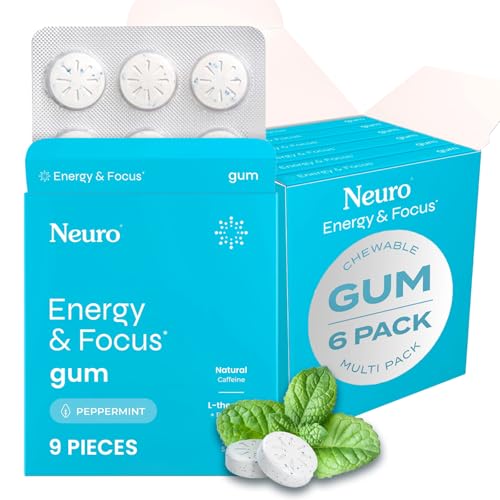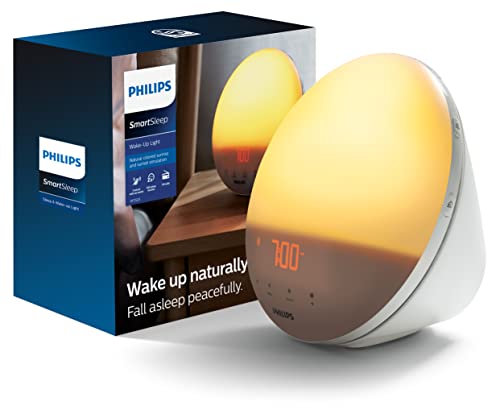Disclosure
This website is a participant in the Amazon Services LLC Associates Program, an affiliate advertising program designed to provide a means for us to earn fees by linking to Amazon.com and affiliated sites.
Introduction
Yes — pulling an all-nighter is generally bad for you. While it might seem like a quick fix for cramming or deadlines, missing a full night of sleep disrupts your cognitive functions, weakens your immune system, and impacts your emotional well-being.
Studies show that staying awake for 24 hours can impair your brain function as much as having a blood alcohol level of 0.10% — that’s above the legal driving limit in most places. So, if you think you’re operating at full capacity during an all-nighter, think again.
What happens when you skip a night of sleep?
- Cognitive decline: Memory, focus, and decision-making take a serious hit.
- Mood swings: Increased anxiety, irritability, or even signs of depression.
- Physical stress: Heart rate and blood pressure rise, while immune response drops.
- Microsleeps: Your brain forces itself to shut down in seconds-long lapses, even while you’re awake.
Best Products for Staying Alert After an All-Nighter
If you’ve pulled an all-nighter — whether for studying, work, or travel — it’s important to bounce back safely. These products can help boost your alertness, energy, and cognitive performance while your body catches up on rest.
1. NeuroGum Nootropic Energy Gum
- Fast-Acting Nootropic – Our energy supplements deliver a balanced boost of…
- Clean Energy – Each piece of our sugar free gum delivers 40mg of natural…
- The Perfect Balance – With 60mg of L-theanine per piece, our energy and focus…
- Why we picked it: This fast-acting gum delivers caffeine, L-theanine, and B-vitamins directly through the mouth for quick energy without a sugar crash.
2. Philips SmartSleep Light Therapy Lamp
- PERSONALIZED WAKE-UP AND WIND-DOWN: Simulated sunset and sunrise, 20 brightness…
- SMART FEATURES: FM radio, tap snooze, bedside lamp, and automatic dimmable…
- MOOD AND ENERGY: Proven to give you an easy and energetic wake-up and improve…
- Why we picked it: Mimics natural sunlight to reset your circadian rhythm and reduce grogginess the morning after sleep deprivation.
3. FocusFactor Brain Supplement
- #1 PHARMACIST RECOMMENDED MEMORY SUPPLEMENT BRAND – Focus Factor is the #1…
- COMPLETE MULTIVITAMIN, IMPROVES MEMORY, CONCENTRATION AND FOCUS: Our Original…
- CLINICALLY TESTED RESULTS: A clinical study showed that adults who took the…
- Why we picked it: A daily supplement with clinically studied ingredients that support memory, focus, and concentration — perfect for mentally demanding days post-all-nighter.
What Happens to Your Body During an All-Nighter?
When you skip an entire night of sleep, your body shifts into survival mode. The longer you’re awake, the more your physical and mental systems begin to break down — and it can happen faster than you think.
Within the First 12–24 Hours:
- Hormonal Disruption: Cortisol (your stress hormone) rises, while melatonin (your sleep hormone) gets suppressed.
- Cognitive Decline: Reaction times slow, memory recall suffers, and problem-solving becomes harder.
- Mood Instability: Irritability, anxiety, and emotional sensitivity increase.
After 24+ Hours Awake:
- Immune Suppression: Your body becomes more vulnerable to viruses and infections.
- Increased Risk of Microsleeps: These are involuntary lapses in consciousness lasting a few seconds — dangerous if you’re driving or operating machinery.
- Physical Effects:
- Higher blood pressure and heart rate
- Slower metabolism
- Poor coordination and motor control
Your Brain’s Response:
- Your brain begins to burn energy inefficiently, working harder for worse results.
- The glymphatic system — which clears brain waste during sleep — stalls, leading to mental fog and slower thinking.
How All-Nighters Affect Your Mental Health
Pulling an all-nighter doesn’t just make you tired — it significantly alters your emotional and psychological well-being. Sleep and mental health are deeply intertwined, and even one sleepless night can tilt the balance in harmful ways.
Emotional Effects of Sleep Deprivation:
- Increased anxiety: Cortisol spikes can heighten feelings of worry or panic.
- Irritability and mood swings: You may overreact to minor frustrations.
- Depressive symptoms: Lack of REM sleep — the phase responsible for emotional processing — can mimic or worsen depression.
Cognitive Strain:
- Decreased self-control: You’re more prone to impulsive decisions.
- Reduced empathy: Sleep-deprived people show less sensitivity to emotional cues.
- Mental fatigue: Makes it hard to concentrate, plan, or handle stress.
Longer-Term Risks (If All-Nighters Become Habitual):
- Increased risk of mood disorders like depression and bipolar disorder
- Burnout and emotional exhaustion, especially in students or shift workers
- Higher risk of substance use as people try to “self-medicate” with caffeine, sugar, or alcohol
Can One All-Nighter Really Hurt You?
You might think one all-nighter isn’t a big deal — and in some cases, your body can recover after a good night of sleep. But even a single night of missed sleep has measurable consequences that go beyond just feeling groggy.
Short-Term Consequences of One All-Nighter:
- Cognitive Impairment: Studies show your brain function after 24 hours without sleep is similar to being legally drunk.
- Poor Judgment: You’re more likely to make impulsive decisions and overlook details.
- Weakened Immune Function: Just one night of poor sleep reduces the activity of natural killer cells by up to 70%.
Physical Risks:
- Higher accident risk: Sleep deprivation contributes to thousands of car crashes and workplace injuries annually.
- Blood pressure and heart rate temporarily spike, increasing cardiovascular strain.
- Disrupted metabolism: Hunger hormones (ghrelin and leptin) become imbalanced, triggering unhealthy cravings.
Academic or Work Impact:
- Retaining new information becomes harder.
- You’re more likely to forget critical tasks or make errors.
- Creativity, focus, and strategic thinking all suffer.
Is It Ever Okay to Pull an All-Nighter?
While pulling an all-nighter is never ideal, there are situations where it might feel unavoidable — exams, travel, work deadlines, or emergency caregiving. But even then, it’s important to weigh the costs and know how to minimize the damage.
When an All-Nighter Might Be Justified:
- Emergency situations: Caring for a sick loved one or responding to a crisis.
- Tight deadlines: Final exams or critical work presentations — though preparation is always better than procrastination.
- Jet lag management: Rarely, staying awake might help reset your body clock during travel.
Signs It’s Not Worth It:
- You’ve already been struggling with sleep deprivation.
- Your task requires sharp focus, judgment, or emotional control.
- You need to drive or operate heavy machinery the next day.
If You Have to Pull an All-Nighter:
- Nap strategically: A 90-minute nap early in the night can reduce sleep debt.
- Stay hydrated: Dehydration worsens fatigue and headaches.
- Eat smart: Avoid heavy meals and sugary snacks. Choose protein-rich, energy-sustaining foods.
- Use light and movement: Bright lights and short walks can help trick your brain into staying alert.
How to Recover From an All-Nighter Quickly and Safely
Recovery from an all-nighter is possible — but it takes more than just “catching up” on sleep. The goal is to reset your body clock, restore mental clarity, and minimize the negative effects on your health and mood.
Prioritize Recovery Sleep (But Don’t Oversleep)
- Aim for 7–9 hours the next night — not 12+ hours, which can disrupt your circadian rhythm.
- If possible, take a 90-minute nap earlier in the day to enter a full sleep cycle.
Hydrate and Nourish Your Body
- Drink plenty of water to combat dehydration from cortisol spikes.
- Eat balanced meals with lean proteins, whole grains, and healthy fats to stabilize energy.
Avoid Stimulants Late in the Day
- Skip caffeine after 2 p.m. — it can delay your ability to fall asleep at night.
- Avoid sugary energy drinks, which cause crashes and disrupt glucose levels.
Get Natural Light and Move
- Step outside in the morning to expose yourself to natural sunlight — this helps reset your internal clock.
- Try light movement like stretching or walking to boost blood flow and alertness.
Create a Restful Night Routine
- Wind down with relaxing activities like reading, meditating, or taking a warm shower.
- Use blue light blockers or dim your screens an hour before bedtime.
Conclusion
Pulling an all-nighter might feel like a necessary evil, but the science is clear — the cost to your body, brain, and mental well-being is significant, even after just one night. Sleep isn’t just rest; it’s your body’s reset button.
Key Takeaways:
- Sleep deprivation impairs brain function as much as being intoxicated.
- Mental health suffers, with more anxiety, irritability, and poor decision-making.
- Physical performance drops, from slower reflexes to weakened immunity.
- Recovery is possible, but it requires intentional rest and care.
Frequently Asked Questions About Pulling an All-Nighter
Can one all-nighter permanently damage your brain?
- No, a single all-nighter won’t cause permanent damage.
- However, it can impair memory, reaction time, and decision-making for up to 48 hours.
- Repeated all-nighters increase the risk of long-term cognitive decline and mental health issues.
Is it better to pull an all-nighter or sleep for a few hours?
- Sleeping for even 90 minutes is better than staying awake all night.
- A short nap allows your brain to complete at least one sleep cycle, restoring some cognitive function.
- Aim for core sleep (3–4 hours) if you can’t get a full night.
How long does it take to recover from an all-nighter?
- Most people need 1–2 full nights of quality sleep to fully recover.
- Daytime fatigue, fogginess, and irritability can linger for 24–72 hours.
- Recovery includes consistent sleep, good hydration, and nutrition.
Can you use caffeine to offset the effects of an all-nighter?
- Caffeine can boost alertness temporarily, especially in the first 12 hours after sleep loss.
- Use in moderation — too much caffeine can cause anxiety, jitters, and worsen sleep the following night.
- Avoid it after mid-afternoon to avoid disrupting your next sleep cycle.
Do all-nighters affect students more than adults?
- Yes — teens and young adults are more vulnerable to the effects of sleep loss.
- Their brains are still developing, making them more susceptible to cognitive and emotional disruptions.
- Sleep is critical for learning, memory, and emotional regulation — especially during high-stress periods.



